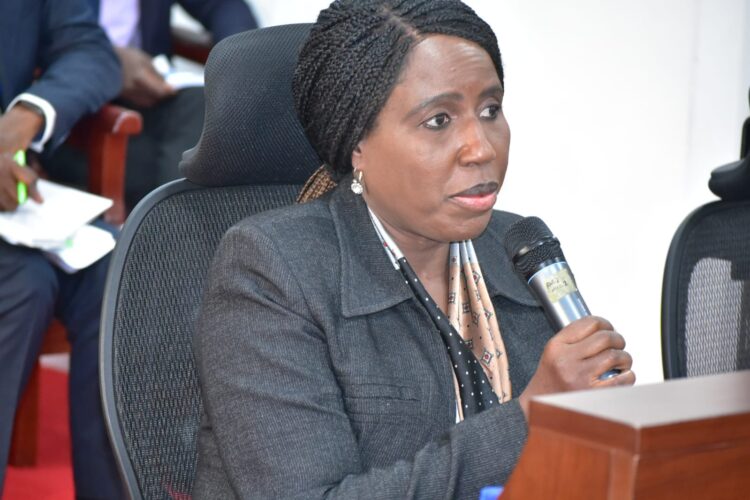Govt Paid Millions to Private Universities for KUCCPS-Unplaced Students – Audit.
A parliamentary committee has questioned the allocation of Sh720 million in government funding to private universities for sponsored students. It was revealed that some of these funds were distributed to students who had not been placed by the Kenya Universities and Colleges Central Placement Service (KUCCPS).
This issue was raised during a Public Accounts Committee (PAC) session in the National Assembly, where it was disclosed that some private universities receiving capitation funds intentionally refused to share student data with Auditor-General Nancy Gathungu.
Higher Education Principal Secretary Dr. Beatrice Inyangala defended the expenditure, accusing the Office of the Auditor-General of relying on unverified data. However, she struggled to provide sufficient justification before the PAC as committee members pressed for explanations regarding the flagged transactions.
Dr. Beatrice Inyangala argued that an analysis by the Universities Fund showed that the students had been placed by KUCCPS but failed to submit the necessary documentation to verify their status. She explained that the University Fund routinely validates student placements with KUCCPS before preparing the disbursement schedules.
She further contended that the Auditor-General’s report was based on initial placement data, overlooking subsequent transfers of students from public universities to private ones or between private universities.
Delayed Studies and Questionable Payments
The PS acknowledged that some students took longer than expected to complete their programs due to financial constraints, which resulted in delays and course repetitions.
The report on the State Department for Higher Education’s 2022/23 financial accounts indicated that Sh201.64 million was allocated to 15 private universities for 4,521 students who had not been placed by KUCCPS. An additional Sh421.73 million was used to support 9,489 students who had remained in universities beyond their scheduled academic period.
Further scrutiny highlighted irregular disbursements, including Sh17.8 million in duplicate capitation payments, Sh35.2 million allocated to already graduated students, and Sh53.6 million for students who had either deferred their studies or were on extended academic leave.
These questionable expenditures have raised concerns, particularly as public institutions like Moi University and the University of Nairobi struggle with severe financial distress. Education Cabinet Secretary Julius Migos previously admitted that 25 out of the 35 public universities are technically insolvent.
Lawmakers, including Nabii Nabwera (Lugari), Joseph Emathe (Turkana Central), and Geoffrey Ruku (Mbeere North), questioned why private universities were receiving such substantial funding while public institutions faced financial ruin. Nabwera criticized the allocation, arguing that supporting students who had deferred their studies was an outright misuse of public funds.
Emathe expressed concerns that the government’s preference for private universities was detrimental to public institutions, linking these financial discrepancies to the decline in education standards. Ruku added that private universities were profiting from government allocations while making no financial contributions to the exchequer.
Read Also: KNQA Asked to Recognize Higher Diploma as Degree
Universities Fund vs. Auditor-General’s Findings
At one point, Dr. Inyangala conceded that some students had remained in universities beyond their expected study duration. However, she stated that the Universities Fund’s analysis confirmed that 5,154 students had overstayed, amounting to an expenditure of Sh183.8 million.
She pointed out a significant discrepancy between the Auditor-General’s report and the Universities Fund’s findings, which showed a variance of 4,335 students and Sh228.93 million in expenditure.
Govt Paid Millions to Private Universities for KUCCPS-Unplaced Students – Audit



Discussion about this post